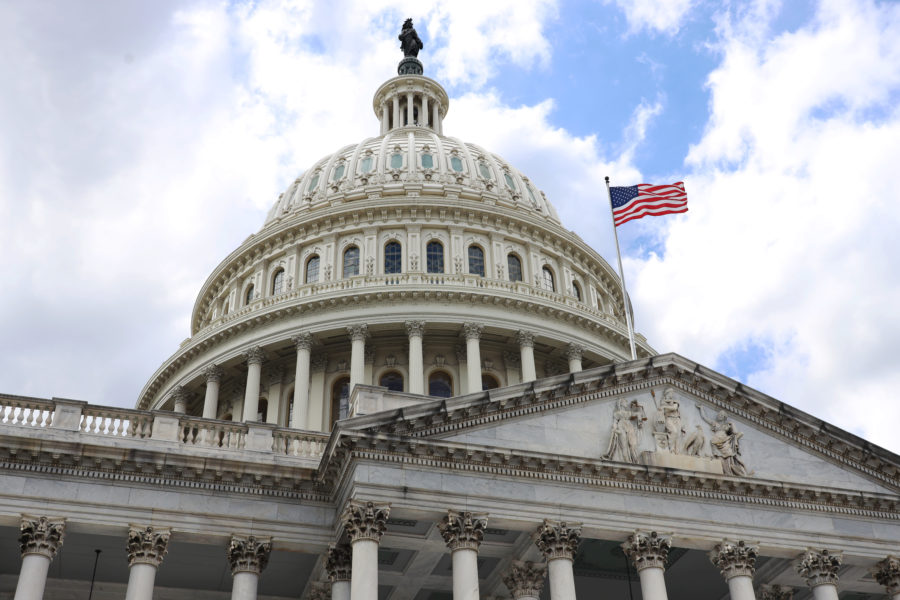The war in Ukraine, China’s regional actions, technological threats, and drug trafficking were the top concerns of leading think tankers testifying before the House Permanent Select Committee on Intelligence.
Frederick Kempe, president of the Atlantic Council, said Russian President Vladimir Putin’s war in Ukraine highlights both strengths and weaknesses of U.S. intelligence.
“What is most urgently required is for the intelligence community … to build a capacity for providing intelligence-driven, longer-term analytical frameworks regarding this strategic competition, so our country can more confidently understand and operationalize the wealth of daily intelligence that it receives,” Kempe said. “How we manage this generational opportunity before us will dictate how this inflection point turns, just as was the case after World War I, World War II, and the Cold War.”
He encouraged a reimagination of the rules and institutions established after World War II to more effectively counter today’s authoritarian influences, such as China, Russia, and Iran.
He also encouraged deeper banks of knowledge, understanding, and analysis in regard to today’s U.S. rivals.
“If we had possessed those wells of deep analytical knowledge, we might have done a better job of predicting Putin’s next steps after the Georgia invasion of 2008, Crimea in 2014, and understanding the fundamental weaknesses of [the] Russian military,” he said. Likewise, he said, the U.S. might have been quicker to recognize “China’s revisionist turn under President Xi Jinping,” Kempe said.
But while Kempe urged “organizational changes … to meet the moment,” Richard Haass, president of the Council on Foreign Relations, warned against any major overhaul of the intelligence community. Too many consequential events continue around the globe, he said, and while some changes may be warranted, a rush to judgment is not the answer.
Haas said the committee should explore whether the Office of the Director of National Intelligence has the resources and personnel it needs, and whether its formation in the wake of 9/11 has enhanced U.S. intelligence or not.
“I’d look at the record of analysis—any number of things to look at—how they did at predicting the Arab Spring, China’s trajectory under Xi, the fall of Afghanistan, the quality of Russia armed forces, protests in Iran, the pandemic,” he said. “Where there were mistakes, I think it would be important for the committee to explore where the IC got it right. What accounts for that?”
Jason Matheny, president of RAND Corporation, cited Russia, China, Iran, and North Korea as concerns, but noted his organization is paying increasing attention to technology and analytic tools, including artificial intelligence and synthetic biology (syn bio) as topics of interest.
“Both hold the potential to broadly transform entire industries, including ones critical to our economic competitiveness, such as medicine, manufacturing, and energy,” he said. “But both technologies also pose grave security challenges for which we’re currently unprepared.”
Matheny said syn bio could spawn potentially more destructive viruses than we saw in the COVID-19 pandemic, and that artificial intelligence has the potential to spawn new “cyber weapons” and “disinformation attacks” on a scale not seen to date. Technology, he predicted, will continue to outpace government reform or policy initiatives aiming to curb its power or potential.
Matheny recommended “ensur[ing] an increased national intelligence emphasis on emerging and disruptive technology topics,” and “significantly expand[ing] collection and analysis of key foreign public syn bio.” In addition, he said the U.S. should “strengthen the intelligence community’s institutional capacity for carrying out such a strategy by creating new partnerships and information sharing agreements among government agencies, academic labs, and industrial firms.”
The intelligence committee should strengthen the nation’s ability to “lead national intelligence estimates and net assessments on global trends on syn bio and AI that include assessments of key foreign public and private entities, their infrastructure, investments, and misuse of their technologies.”
Matheny encouraged an “IC framework to share classified [science and technology] intelligence with allied high technology nations,” especially the U.S. Five Eyes partners (the UK, Canada, Australia, and New Zealand), as well as Germany, France, Japan, Singapore, Netherlands, and South Korea.
Amy Zegart, senior fellow at the Hoover Institution and professor of Political Science at Stanford University, said switching resources from counterterrorism to today’s challenges is not enough.
“The explosion of open-source information available online, the growth of commercial satellite capabilities, and the rise of AI have created an open-source intelligence revolution that is making new insights possible, and that is creating a global ecosystem of citizen investigators,” she said. “A new agency would give open source [intelligence gathering and analysis] the budget, personnel, and seat at the table to champion it.”
Hudson Institute President John Walters encouraged the committee to focus on illegal drug trafficking, particularly nation-sponsored activity. He noted that illegal drugs kill 30 times as many people each year as the 9/11 terrorists killed in one day. “Our adversaries have identified this vulnerability and they are exploiting it,” Walters said. “Let’s begin by recognizing that narco-terrorists are terrorists; they are proxies for the Chinese Communist Party.”
Walters, who was director of the White House Office of National Drug Control Policy under President George W. Bush, said narco-terrorists aren’t treated as the serious threats they truly are, and made direct ties between drug trafficking and China.
“The [Peoples Republic of China] has been the source of finished fentanyl and precursor chemicals used to make finished fentanyl in Mexico,” he said. “In addition, the PRC is involved in key money laundering operations for the Mexican cartels.”
He said the U.S. should work to destabilize drug cartels as it did to break up terrorist organizations.
“As with al Qaeda, the highest value targets are at the top of the pyramid,” Walters said. “A broad and repeated attack on the most senior leadership and their lieutenants is likely to cause the greatest destabilization.”
